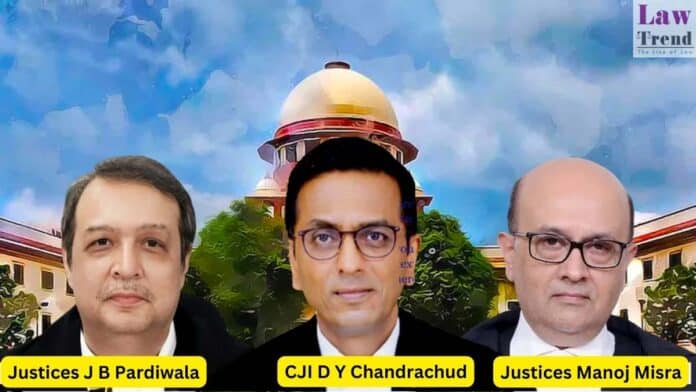In a landmark judgment delivered by Chief Justice of India Dr. D.Y. Chandrachud, and comprising Justice J.B. Pardiwala and Justice Manoj Misra, the Supreme Court of India addressed the deep-rooted issue of caste-based discrimination in Indian prisons. The case, Sukanya Shantha v. Union of India (Writ Petition (C) No. 1404 of 2023), dealt with unconstitutional
To Read More Please Subscribe to VIP Membership for Unlimited Access to All the Articles, Download Available Copies of Judgments/Order, Acess to Central/State Bare Acts, Advertisement Free Content, Access to More than 4000 Legal Drafts( Readymade Editable Formats of Suits, Petitions, Writs, Legal Notices, Divorce Petitions, 138 Notices, Bail Applications etc.) in Hindi and English.




